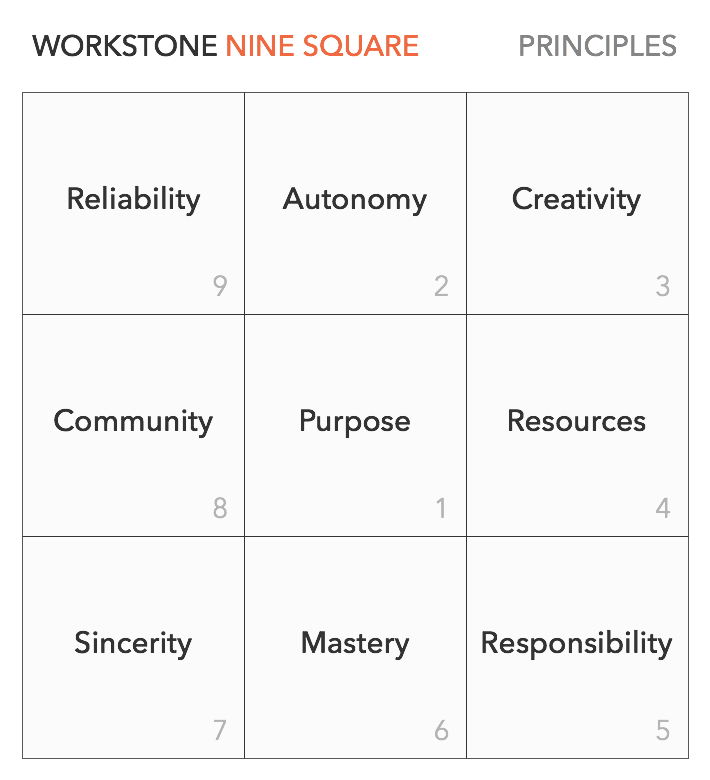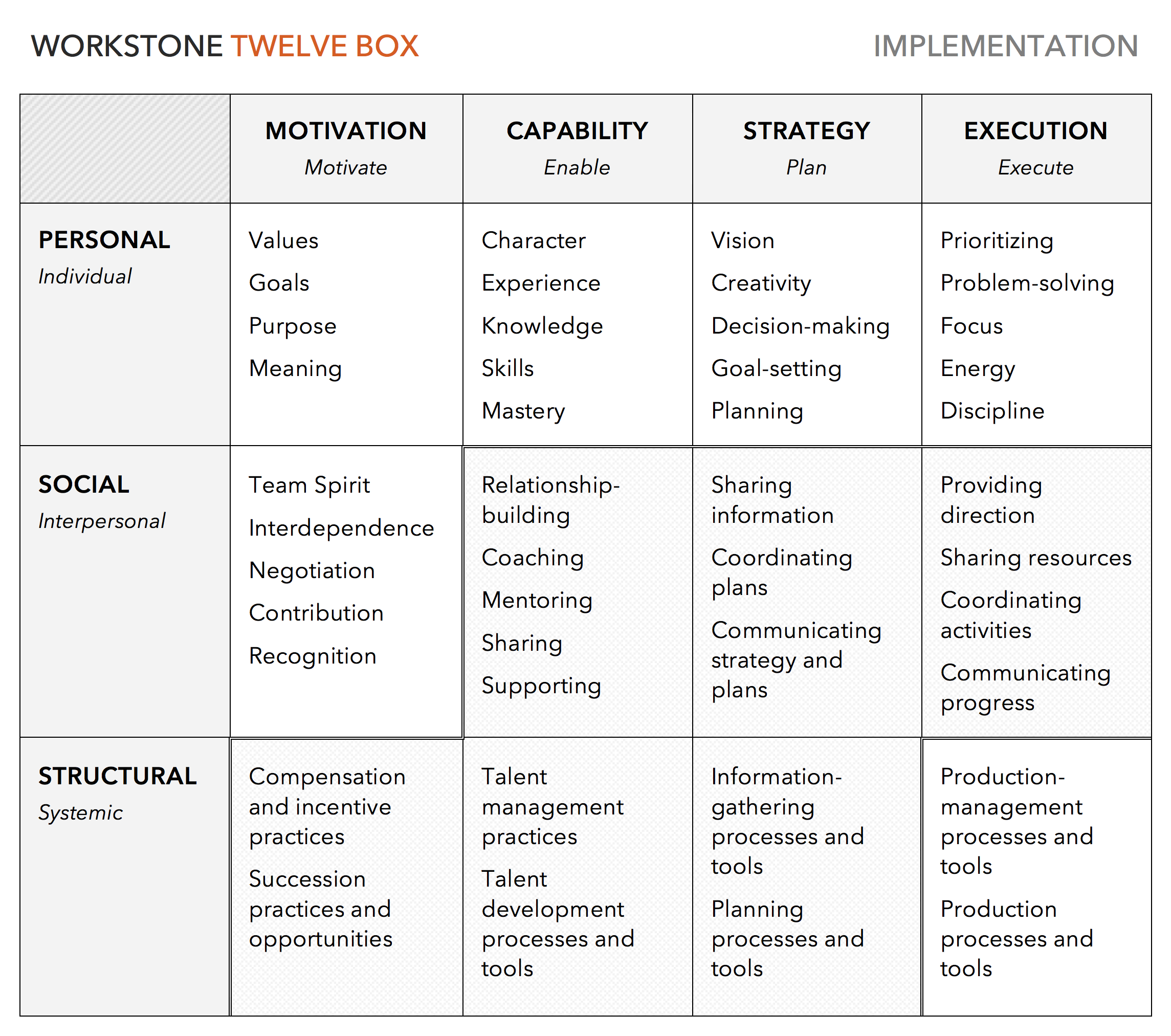Weekly Phone Sessions
Each group meets once a week by phone for 60 minutes.
Weekly phone sessions:
- Keep managers on the job
- Use time efficiently
- Provide ease and flexibility
- Encourage sharing
- Deliver knowledge in right-sized, applicable chunks
- Support ongoing conversations
- Reinforce learning through repetition
- Build mastery through consistent practice
- Provide a venue for participants to take on and discuss Weekly Action Challenges
In our experience, telephone conference calls work better than video conferencing because the phone encourages more focused, in-depth conversations, whereas video conferencing adds distractions and leads to more “presentational” interactions. Also, phone calls are more convenient for managers—especially when traveling, when having off-hours calls, and/or when connecting across multiple time zones.
Group Facilitators
Each weekly session is facilitated by a trained Group Facilitator.
All Workstone Group Facilitators are experts both in business management and in professional development.
Group facilitators:
- Establish a productive learning space
- Ensure balanced participation among group members
- Model important attitudes, habits and thought-processes
- Guide the examination of important concepts and practices
- Help participants discover important insights
- Focus attention on finding practical solutions
- Challenge participants to apply what they learn
In addition to providing our own facilitators, we also train our customers' managers to deliver our programs to their own people. For more information on group facilitator training, see Workstone Forum Programs.
Session Materials
Each weekly session is framed and supported by a short reading, usually two or three pages, and most sessions include tools to help managers do their job better.
The weekly session materials:
- Show managers how to do their job better in clear, practical terms
- Support valuable discussions about work-in-progress
- Teach important management concepts and practices
- Deliver knowledge in concise, useful “packages”
- Rotate through a comprehensive series of essential management principles
- Provide tools to help managers do their job better
- Support a flexible, modular approach to tailoring programs for specific needs
What Works
On-the-Job Development
Small Groups
Weekly Sessions
Practice and Repetition
60-minute Phone Calls
Group Facilitators
18- to 36-session Programs
Tightly-focused Readings
Straightforward Tools
Actionable Assessments
Weekly Feedback Forms
Structure and Support
What Works
On-the-Job Development
Small Groups
Weekly Sessions
Practice and Repetition
60-minute Phone Calls
Group Facilitators
18- to 36-session Programs
Tightly-focused Readings
Straightforward Tools
Actionable Assessments
Weekly Feedback Forms
Structure and Support
Tools and Techniques
Every session focuses on useful techniques for managing people and business, and most of the techniques are supported by on-the-job tools.
Our programs do cover important business principles and management concepts, but they're not academic courses. They're on-the-job learning experiences that help managers do their job better—right here, right now.
On-the-job tools help managers apply new techniques immediately, and they guide managers in following best practices on a consistent basis. With consistent use, the tools help managers develop increasing mastery over time.
The tools and techniques address such topics as:
- Diagnosing problems
- Analyzing opportunities
- Approaching situations strategically
- Making decisions
- Setting priorities
- Planning activities
- Allocating resources
- Managing teams
- Managing projects
- Controlling costs
- Minimizing risks
- Fostering innovation
- Improving service
- Communicating effectively
- Coaching
- Mentoring
- Negotiating
- Selling
- Presenting
- Developing character strengths
- Clarifying values
- Career planning
- Understanding different interpersonal styles
- Accounting for differences in people's motivations
- Building relationships with co-workers, vendors and customers
We don't try to change the way that people are. We show them better ways of doing things, and we give them tools and techniques that enable them to do great things.
18- to 36-session Programs
Our standard programs run 18 to 36 sessions in length.
18- to 36-session programs are ideal because they give managers enough time to:
- Study a broad range of topics in depth
- Develop nuanced understanding of complex business and management issues
- Build genuine expertise and valuable habits through consistent practice
- Develop lasting bonds with colleagues
The programs also last just the right amount of time to maintain strong engagement and focus throughout the process.
Weekly Feedback
We collect feedback about every session from every participant through an online form that can be completed in less than 60 seconds.
The form asks the participant to rate the session in a short list of key areas, such as the performance of the group, the performance of the facilitator, the value of the session materials, and the overall value of the session. The form also encourages participants to ask questions and offer comments.
Weekly feedback:
- Maintains an open channel of communication with each participant
- Enhances engagement
- Allows us to adjust the programs as they run
- Allows us to provide detailed, real-time reports about the performance of each participant
- Ensures great results
- Captures hard data about the managers' KPIs and financial performance to show the measurable benefits of the programs
Detailed Reporting
We provide detailed written reports to program sponsors after each nine-week series, and we're always available to discuss the performance and progress of the participants.
Each written report:
- Provides detailed information about each participant's performance, experience and progress in the program
- Shows the specific benefits and overall value of the program
- Provides useful information about important issues within the company
- Provides insights about which managers have the best potential for specific roles within the company
Top ↑


